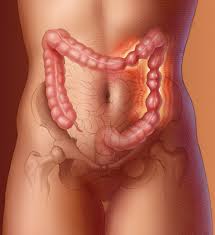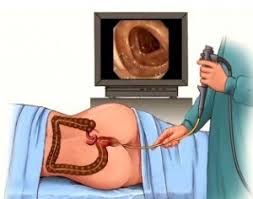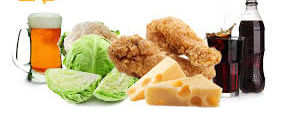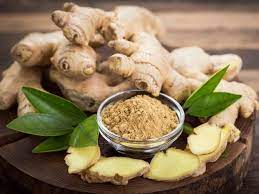Diagnosing IBS: How Doctors Identify and Treat Irritable Bowel Syndrome
Dealing with Irritable Bowel Syndrome (IBS) can be challenging, but relief is possible. Whether you’re struggling with discomfort, bloating, or unpredictable bowel movements, understanding and managing your symptoms is key to reclaiming control over your digestive health. IBS is a chronic digestive disorder that affects the large intestine. It is characterized by recurrent abdominal pain, cramping, bloating, gas, changes in bowel habits (constipation and/or diarrhea). It can have a major impact on one’s quality of life. However, understanding the underlying pathophysiology and exploring the various treatment options available are important to consider when managing the co. We will discuss the following topics:
Pathophysiology of IBS
Causes of IBS
Symptoms of IBS
Risk factors for IBS
Complications of IBS
Prevention of IBS
Management of IBS
Natural remedies for IBS
Foods pro IBS
Foods to Avoid
Fennel
Melatonin
Yogurt
When to seek urgent medical care

Pathophysiology of IBS
Irritable Bowel Syndrome is a functional gastrointestinal disorder characterized by chronic abdominal pain or discomfort and altered bowel habits in the absence of any organic cause. The pathophysiology is multifactorial and not completely understood. Several mechanisms have been proposed to contribute to the development of IBS, including altered gut motility, visceral hypersensitivity, altered gut-brain axis, intestinal inflammation, microbiota dysbiosis and changes in the immune system.
Altered Gut Motility: Alterations in the gut microbiota are thought to be one of the most important causes. The composition of the gut microbiota may be different in people with IBS compared to people without the condition. This could lead to an imbalance in the gut bacteria and an increase in the production of certain toxins which may contribute to the symptoms. Some people experience diarrhea-predominant symptoms, while others have constipation-predominant symptoms. In diarrhea-predominant IBS, there may be an increased frequency of high-amplitude contractions in the small intestine and/or increased motility in the colon. In constipation-predominant IBS, there may be a delay in the transit of feces through the colon, which can lead to the accumulation of stool and abdominal discomfort.
Visceral Hypersensitivity: Visceral hypersensitivity refers to increased sensitivity to pain or discomfort arising from internal organs. People may have heightened perception of normal gut sensations or exaggerated responses to noxious stimuli. This hypersensitivity may be due to altered sensory processing in the central nervous system, altered gut-brain axis signaling, or increased release of inflammatory mediators.
Altered Gut-Brain Axis: The gut-brain axis refers to the bidirectional communication between the gut and the brain. The gut communicates with the brain through the enteric nervous system (ENS), which is sometimes called the “second brain.” The ENS consists of millions of neurons that regulate gut motility, secretion, and blood flow. Alterations in gut-brain axis signaling may contribute to the development of IBS. For example, stress can activate the hypothalamic-pituitary-adrenal (HPA) axis, leading to the release of cortisol and other stress hormones that can affect gut motility and increase visceral sensitivity.
Intestinal Inflammation: Some studies suggest that low-grade intestinal inflammation may play a role in the development of the condition. This inflammation may be due to a variety of factors, including gut dysbiosis, infection, or immune dysfunction. Increased levels of inflammatory cytokines have been found in some people with IBS, particularly those with diarrhea-predominant symptoms.
Increased intestinal permeability, also known as “leaky gut”, has been linked to IBS. This occurs when the lining of the intestines becomes more porous and allows large molecules, such as toxins and bacteria, to pass through more easily. This can lead to inflammation, which in turn can worsen symptoms.
Changes in the immune system. People with the condition have been found to have an altered immune response which may increase inflammation throughout the body. This could then lead to an increase in IBS symptoms.
Microbiota Dysbiosis: The gut microbiota refers to the trillions of microorganisms that live in the human gut. These microorganisms play a critical role in gut homeostasis, including immune function, digestion, and metabolism. Dysbiosis, or alterations in the composition or function of the gut microbiota, may contribute to the development of IBS. Dysbiosis may be due to a variety of factors, including diet, antibiotics, infection, and stress. Some studies have found differences in the gut microbiota between people with IBS and healthy controls, although the significance of these differences is not fully understood.
Causes of IBS
The exact causes are not yet fully understood. However, a number of factors have been identified that are thought to contribute to the development of IBS. These factors include:
- Altered Gut Motility: People with IBS may have abnormal contractions of the muscles in the small and large intestines. This can result in diarrhea, constipation or both. Certain foods, stress, hormonal changes, and medication may trigger these abnormal contractions.
- Visceral Hypersensitivity: People with IBS may have increased sensitivity to pain or discomfort arising from internal organs. This hypersensitivity can cause even mild gut contractions or gas to be perceived as painful.
- Gut-Brain Axis Dysfunction: The gut and the brain are connected through the enteric nervous system and the autonomic nervous system. Dysfunction in this gut-brain axis can lead to symptoms of IBS, including abdominal pain, bloating, and altered bowel habits.
- Inflammation: In some cases, an infection in the gut can trigger inflammation that leads to symptoms.
- Psychological Factors: as anxiety, depression, and stress can also contribute to the development of IBS. This is because the gut and the brain are connected, and emotional stress can trigger physical symptoms in the gut.
- Genetics: There may be a genetic component to IBS. People with a family history of IBS are more likely to develop the condition.
- Food Sensitivities: Certain foods, such as dairy, wheat, and artificial sweeteners, may trigger symptoms in some people.
Symptoms of IBS

Irritable Bowel Syndrome (IBS) is a chronic gastrointestinal disorder that can cause a range of symptoms. The symptoms of IBS can vary from person to person, and may include:
- Abdominal pain or cramping
- Bloating and gas
- Diarrhea or constipation, or a combination of both
- Alternating bowel habits (constipation and diarrhea)
- Mucus in the stool
- Feeling like you need to have a bowel movement but not being able to
- Feeling like you haven’t fully emptied your bowels after a bowel movement
- Nausea
- Fatigue
- Loss of appetite
Diagnosis of IBS

The diagnosis is typically made based on a patient’s symptoms and a physical examination. There is no specific test to diagnose the condition, but doctors may use certain tests to rule out other conditions that can cause similar symptoms, such as inflammatory bowel disease (IBD), celiac disease, or colon cancer. These tests may include:
Medical History and Physical Examination: The first step in diagnosis is to take a detailed medical history and perform a physical examination. During the medical history, the healthcare professional will ask about the patient’s symptoms, including their frequency, duration, and severity. They will also ask about any other medical conditions the patient may have and any medications they are taking. The physical examination will involve checking for any signs of abdominal tenderness or distension, as well as listening to bowel sounds.
Diagnostic Tests: Once the medical history and physical examination are complete, the healthcare professional may order diagnostic tests to help confirm the diagnosis of IBS. These tests may include blood tests, stool tests, and imaging tests such as an abdominal X-ray or ultrasound. These tests can help rule out other conditions that may be causing the patient’s symptoms.
Blood tests: can help rule out other conditions that can cause similar symptoms, such as celiac disease or inflammatory bowel disease.
Stool tests: can help rule out infections or other conditions that can cause diarrhea or other bowel symptoms.
Colonoscopy:  is a procedure that allows a doctor to examine the colon and rectum for signs of disease, such as colon cancer or inflammatory bowel disease.
is a procedure that allows a doctor to examine the colon and rectum for signs of disease, such as colon cancer or inflammatory bowel disease.
Imaging tests: such as an abdominal CT scan or ultrasound may be used to rule out other conditions that can cause similar symptoms.
Rome Criteria: is a set of guidelines that healthcare professionals use to diagnose IBS. According to these guidelines, a patient must have recurrent abdominal pain or discomfort for at least three days per month in the last three months, along with two or more of the following symptoms: improvement with defecation, onset associated with a change in frequency of stool, or onset associated with a change in form (appearance) of stool. If a patient meets these criteria and other conditions have been ruled out, they may be diagnosed with IBS. In order to make a diagnosis, a doctor will typically look for a pattern of symptoms that match the diagnostic criteria for IBS.
Complications of IBS
While IBS is not a life-threatening condition, it can significantly impact a person’s quality of life. Some of the potential complications associated include:
Malnutrition: If a person’s symptoms are severe enough to limit their food intake, they may not be getting enough nutrients to support their health. One of the most common complications of IBS is malnutrition. This occurs when the body is unable to absorb nutrients from food due to the inflammation and damage. Malnutrition can lead to a host of health problems, including anemia, weakened immune system, and delayed growth and development in children. To prevent malnutrition, it is essential to follow a balanced diet that includes plenty of fruits, vegetables, whole grains, and lean protein. In some cases, a doctor may recommend supplements to ensure that the body is getting all the necessary nutrients.
Dehydration: Diarrhea and vomiting can lead to dehydration if a person is not able to drink enough fluids to replace what they are losing. Another complication is dehydration. Diarrhea is a common symptom of IBS, and it can cause the body to lose fluids and electrolytes rapidly. If left untreated, dehydration can lead to serious health problems such as kidney damage and seizures. To prevent dehydration, it is important to drink plenty of fluids throughout the day, especially water and electrolyte-rich drinks such as sports drinks or coconut water. If you are experiencing severe diarrhea or vomiting, seek medical attention immediately.
Anxiety and depression: The chronic pain and discomfort associated with IBS can take a toll on a person’s mental health, leading to anxiety and depression. The chronic nature of IBS can be stressful and overwhelming, leading to feelings of anxiety and depression. In some cases, these mental health problems can exacerbate symptoms, creating a vicious cycle. To manage mental health problems associated with IBS, it is important to seek professional help from a therapist or counselor. They can provide support and guidance on how to cope with the emotional challenges of living with the condition.
Difficulty participating in daily activities: The unpredictable nature of the symptoms may make it difficult for a person to participate in work, school, or social activities, leading to a reduced quality of life.
Colorectal cancer: IBS can lead to an increased risk of colorectal cancer. While it itself does not cause cancer, the chronic inflammation and damage to the colon can increase the risk of developing cancer over time. To reduce the risk of colorectal cancer, it is essential to undergo regular screenings such as colonoscopies. Additionally, it is important to maintain a healthy lifestyle that includes regular exercise, a balanced diet, and avoiding smoking and excessive alcohol consumption.
Hemorrhoids: The straining associated with constipation can lead to the development of hemorrhoids.
Prevention of IBS
Unfortunately, there is no known way to prevent Irritable Bowel Syndrome from developing. However, there are some steps that may help reduce the likelihood of experiencing symptoms or manage symptoms if they do occur. These steps include:
- Eating a healthy diet: Consuming a diet rich in fruits, vegetables, whole grains, and lean protein, and limiting high-fat, high-sugar, and processed foods may help reduce symptoms. One of the most effective ways is to eat a healthy diet. This means consuming plenty of fruits, vegetables, whole grains, and lean proteins. Avoiding processed foods, fried foods, and foods high in fat can also help prevent IBS. Additionally, it is important to stay hydrated by drinking plenty of water throughout the day.
- Drinking plenty of fluids: Staying hydrated by drinking plenty of water, herbal teas, and other fluids can help reduce symptoms such as constipation.
- Managing stress: Stress can be a trigger for symptoms, so finding ways to manage stress, such as through exercise, relaxation techniques, or counseling, may be helpful. Stress is a common trigger for IBS symptoms. Therefore, managing stress is an important part of preventing IBS. Engaging in stress-reducing activities such as yoga, meditation, or deep breathing exercises can help reduce stress levels. Additionally, getting enough sleep and taking breaks throughout the day can also help manage stress.
- Avoiding trigger foods: Some people with IBS find that certain foods trigger their symptoms, so it may be helpful to avoid or limit these foods. Certain foods can trigger IBS symptoms in some people. Common trigger foods include dairy products, gluten, caffeine, and alcohol. Keeping a food diary can help identify trigger foods and avoid them in the future.
- Getting regular exercise: can help promote regular bowel movements and reduce stress, which may help reduce symptoms. Regular exercise can help prevent IBS by promoting healthy digestion and reducing stress levels. Aim for at least 30 minutes of moderate-intensity exercise most days of the week. This can include activities such as walking, jogging, cycling, or swimming.
- Avoiding smoking: Smoking has been linked to an increased risk of IBS, so avoiding smoking or quitting smoking may be helpful.
Treatment of IBS

The treatment of typically involves a combination of lifestyle changes and medications to manage symptoms and may include:
- Diet modification: Following a healthy diet that is low in fat, high in fiber, and avoiding trigger foods can help manage symptoms. One of the most effective ways to manage symptoms is through dietary changes. Certain foods can trigger IBS symptoms, so it is important to identify and avoid them. Some common trigger foods include dairy products, caffeine, alcohol, and spicy foods. Instead, focus on eating a diet rich in fiber, such as fruits, vegetables, and whole grains. Fiber helps regulate bowel movements and can reduce constipation and diarrhea. Additionally, drinking plenty of water can help keep the digestive system functioning properly.
- Stress reduction techniques: Mindfulness meditation, deep breathing exercises, and other relaxation techniques can help reduce stress and improve IBS symptoms.
- Medications: Depending on the type and severity of symptoms, medications such as laxatives, antidiarrheals, and antispasmodics may be prescribed to help manage symptoms. In addition to lifestyle changes, medications can also be used to treat IBS. Over-the-counter medications such as laxatives, antidiarrheals, and antispasmodics can help relieve symptoms. Prescription medications such as tricyclic antidepressants and selective serotonin reuptake inhibitors (SSRIs) can also be used to manage symptoms. These medications work by altering the way the brain and gut communicate, which can reduce pain and discomfort.
- Cognitive-behavioral therapy (CBT) is a type of therapy that focuses on changing negative thought patterns and behaviors that can contribute to IBS symptoms. This therapy can help patients learn coping strategies for managing stress and anxiety, which are common triggers for IBS symptoms. Hypnotherapy is another type of therapy that has been shown to be effective in managing symptoms of IBS. This therapy involves using relaxation techniques and positive suggestions to reduce pain and discomfort.
- Lifestyle Changes: One of the most effective ways to manage IBS is through lifestyle changes. This includes adopting a healthy diet, reducing stress levels, and getting regular exercise. A diet rich in fiber can help regulate bowel movements and reduce constipation. It is also important to avoid trigger foods such as caffeine, alcohol, and spicy foods. Stress management techniques such as yoga, meditation, and deep breathing exercises can also help alleviate symptoms.
- Exercise: Regular physical activity, such as walking or yoga, can help improve digestion, reduce stress, and improve mood.
- Stress reduction: Practicing relaxation techniques, such as deep breathing, meditation, or yoga, can help reduce stress, which can improve symptoms.
- Probiotics: Probiotics are “good” bacteria that can help improve gut health, and some studies have shown that they may help improve symptoms.
- Counseling: Seeking professional support from a mental health professional, such as a psychologist or therapist, can help manage symptoms of anxiety or depression associated with IBS.
- Alternative therapies: such as acupuncture, hypnotherapy, and herbal remedies have also been shown to be effective in managing IBS symptoms. Acupuncture involves the insertion of thin needles into specific points on the body to alleviate pain and discomfort. Hypnotherapy uses guided relaxation techniques to reduce stress and anxiety.
- Herbal Remedies: such as peppermint oil and ginger have also been shown to alleviate symptoms of IBS. Several herbs have been found to be effective in managing IBS symptoms. Peppermint oil is a popular choice, as it can help reduce abdominal pain and bloating. Ginger is another herb that has been shown to have anti-inflammatory properties and can help alleviate nausea and vomiting. Chamomile tea can also be beneficial for those with IBS, as it can help relax the muscles in the digestive tract and reduce inflammation.
Natural remedies for IBS
- Probiotics: are “good” bacteria that live in the gut and may help improve digestion and reduce inflammation. Eating foods that are rich in probiotics, such as yogurt or kefir, or taking a probiotic supplement may help alleviate symptoms.
- Peppermint oil: has antispasmodic properties that may help reduce abdominal pain and bloating. It is available in capsule form, as well as in teas and essential oils.
- Fiber: Increasing fiber intake can help improve bowel regularity and reduce constipation. Eating fiber-rich foods such as fruits, vegetables, and whole grains can be helpful.
- Ginger:
 has anti-inflammatory properties that may help reduce inflammation in the gut and improve digestion. Drinking ginger tea or adding fresh ginger to meals may be helpful.
has anti-inflammatory properties that may help reduce inflammation in the gut and improve digestion. Drinking ginger tea or adding fresh ginger to meals may be helpful. - Acupuncture: Acupuncture, a traditional Chinese medicine therapy, involves inserting thin needles into specific points on the body to promote healing and alleviate symptoms. Some studies have shown that acupuncture may help reduce symptoms.
- Stress reduction techniques: Practicing relaxation techniques such as deep breathing, meditation, or yoga may help reduce stress, which can improve IBS symptoms. Stress can exacerbate IBS symptoms, so it is important to find ways to manage stress levels. Exercise is a great way to reduce stress and improve overall health. Yoga and meditation can also be effective in reducing stress levels and promoting relaxation. Additionally, getting enough sleep is crucial for managing stress levels and maintaining overall health.
- Fennel:
 is an herb that has been traditionally used to treat digestive problems. It contains compounds that have anti-inflammatory and antispasmodic properties, which may help alleviate symptoms of IBS. Fennel can be consumed as a tea or added to meals as a spice. Fennel is a flowering plant that is commonly used in cooking. It has a licorice-like flavor and is often used as a spice in Mediterranean cuisine. Fennel is also known for its health benefits. It is rich in antioxidants and has anti-inflammatory properties that can help reduce inflammation in the body. Fennel is also a good source of fiber, which can aid in digestion and promote regular bowel movements. Additionally, fennel has been shown to have antimicrobial properties that can help fight off harmful bacteria in the body.
is an herb that has been traditionally used to treat digestive problems. It contains compounds that have anti-inflammatory and antispasmodic properties, which may help alleviate symptoms of IBS. Fennel can be consumed as a tea or added to meals as a spice. Fennel is a flowering plant that is commonly used in cooking. It has a licorice-like flavor and is often used as a spice in Mediterranean cuisine. Fennel is also known for its health benefits. It is rich in antioxidants and has anti-inflammatory properties that can help reduce inflammation in the body. Fennel is also a good source of fiber, which can aid in digestion and promote regular bowel movements. Additionally, fennel has been shown to have antimicrobial properties that can help fight off harmful bacteria in the body. - Melatonin: Melatonin is a hormone that regulates the sleep-wake cycle and has been found to have anti-inflammatory and antioxidant properties. Some studies have shown that taking melatonin supplements may improve symptoms of IBS, particularly sleep disturbances and abdominal pain. Melatonin is a hormone that is naturally produced by the body. It plays a key role in regulating sleep-wake cycles and is often used as a sleep aid. Melatonin supplements are available over-the-counter and are commonly used by people who have trouble falling asleep or staying asleep. In addition to its sleep-promoting properties, melatonin has been shown to have antioxidant properties that can help protect the body against damage from free radicals. It may also have anti-inflammatory effects that can help reduce inflammation in the body.
- Yogurt: Yogurt is a probiotic-rich food that contains live bacteria cultures that can help improve gut health. Eating yogurt regularly may help alleviate symptoms of IBS, particularly diarrhea and bloating. Yogurt is a fermented dairy product that is rich in probiotics. Probiotics are beneficial bacteria that live in the gut and help maintain a healthy balance of microorganisms. Eating yogurt regularly can help improve digestion, boost the immune system, and reduce inflammation in the body. Yogurt is also a good source of calcium, which is important for maintaining strong bones and teeth. Additionally, some studies have shown that eating yogurt may help lower blood pressure and reduce the risk of heart disease.
Foods pro IBS
The following foods may be helpful for individuals with Irritable Bowel Syndrome:
Soluble fiber: Foods high in soluble fiber, such as oatmeal, bananas, and sweet potatoes, can help improve bowel regularity and reduce constipation. Fiber is an essential nutrient for digestive health, but it can also be a trigger for IBS symptoms. However, not all fibers are created equal. Soluble fiber, found in foods like oats, bananas, and sweet potatoes, can help regulate bowel movements and reduce diarrhea. Insoluble fiber, found in foods like whole grains and leafy greens, can help prevent constipation. It’s important to gradually increase fiber intake to avoid sudden changes that can worsen symptoms.
Low FODMAP foods:  FODMAPs are certain types of carbohydrates that are poorly absorbed in the gut and can trigger symptoms of IBS. Eating a low FODMAP diet, which limits high FODMAP foods such as onions, garlic, and wheat, may be helpful for some people with IBS. FODMAPs are a group of carbohydrates that are poorly absorbed in the small intestine and can cause digestive symptoms in some people with IBS. Following a low-FODMAP diet involves avoiding high-FODMAP foods like wheat, onions, garlic, and certain fruits and vegetables for a period of time, then gradually reintroducing them to identify trigger foods. This approach can be effective for reducing symptoms in some people with IBS, but it’s important to work with a registered dietitian to ensure adequate nutrient intake.
FODMAPs are certain types of carbohydrates that are poorly absorbed in the gut and can trigger symptoms of IBS. Eating a low FODMAP diet, which limits high FODMAP foods such as onions, garlic, and wheat, may be helpful for some people with IBS. FODMAPs are a group of carbohydrates that are poorly absorbed in the small intestine and can cause digestive symptoms in some people with IBS. Following a low-FODMAP diet involves avoiding high-FODMAP foods like wheat, onions, garlic, and certain fruits and vegetables for a period of time, then gradually reintroducing them to identify trigger foods. This approach can be effective for reducing symptoms in some people with IBS, but it’s important to work with a registered dietitian to ensure adequate nutrient intake.
Lean protein: Eating lean protein sources such as chicken, fish, and tofu can provide necessary nutrients without aggravating IBS symptoms.
Probiotic-rich foods: Probiotics are beneficial bacteria that live in the gut and can help improve gut health. Eating probiotic-rich foods such as yogurt, kefir, and sauerkraut may be helpful for some people with IBS. Probiotics are beneficial bacteria that live in the gut and help maintain a healthy balance of microorganisms. Eating probiotic-rich foods like yogurt, kefir, and sauerkraut can help improve digestion and reduce inflammation in the gut. It’s important to choose products that contain live and active cultures, as some yogurts and other products may be pasteurized or heat-treated, which can kill off the beneficial bacteria.
Ginger: Ginger has anti-inflammatory properties that can help reduce inflammation in the gut and improve digestion. Adding fresh ginger to meals or drinking ginger tea may be helpful for some people with IBS.
Hydrating Foods: Staying hydrated is important for overall health, but it can also help prevent constipation and reduce bloating. Drinking plenty of water is essential, but eating hydrating foods like cucumbers, watermelon, and celery can also contribute to fluid intake. Avoiding dehydrating beverages like alcohol and caffeine can also help prevent symptoms.
Foods to Avoid

Maintaining a healthy lifestyle is essential for a long and fulfilling life. One of the most important aspects of a healthy lifestyle is a balanced diet. While it is essential to consume a variety of foods, it is also crucial to avoid certain foods that can harm your health. The following foods may trigger symptoms in individuals with Irritable Bowel Syndrome and should be avoided or limited:
High FODMAP foods: Certain types of carbohydrates called FODMAPs are poorly absorbed in the gut and can trigger symptoms such as bloating, gas, and diarrhea in people with IBS. High FODMAP foods include onions, garlic, wheat, dairy products, beans, and some fruits.
Gas-producing foods: Certain foods, such as beans, lentils, broccoli, cabbage, and onions, can produce gas in the gut, which can exacerbate symptoms of IBS.
Fried and fatty foods: High-fat and fried foods can be difficult to digest and can trigger symptoms of IBS, particularly diarrhea.
Trans Fats Trans fats are another food item that you should avoid for a healthier lifestyle. These fats are often found in processed foods such as baked goods, fried foods, and snack foods. Trans fats can increase your risk of heart disease by raising your LDL (bad) cholesterol levels and lowering your HDL (good) cholesterol levels. Instead, opt for healthy fats such as olive oil, avocado, nuts, and seeds.
Caffeine: Caffeine is a stimulant that can increase bowel movements and exacerbate diarrhea in some people with IBS.
Alcohol: Alcohol can irritate the gut and increase bowel movements, which can trigger symptoms of IBS. While moderate alcohol consumption can have some health benefits, excessive alcohol consumption can harm your health. Excessive alcohol consumption can lead to liver disease, high blood pressure, and other health problems. It can also lead to weight gain and poor decision-making. Instead, limit your alcohol consumption to one drink per day for women and two drinks per day for men.
Spicy foods: Spicy foods can irritate the gut and trigger symptoms of IBS, particularly abdominal pain.
Processed Foods: Processed foods are one of the most significant contributors to poor health. These foods are often high in sugar, salt, and unhealthy fats. They are also low in essential nutrients, such as fiber, vitamins, and minerals. Processed foods include items such as chips, candy, soda, and fast food. These foods can lead to weight gain, high blood pressure, and other health problems. Instead, opt for whole foods such as fruits, vegetables, whole grains, and lean proteins.
Sugary Drinks: Sugary drinks are another food item that you should avoid for a healthier lifestyle. These drinks include soda, sports drinks, energy drinks, and fruit juices with added sugars. These drinks are high in calories and sugar and can lead to weight gain and other health problems such as diabetes and heart disease. Instead, opt for water, unsweetened tea, or sparkling water with a slice of lemon or lime.
When to seek urgent medical care
Your health is one of the most important things you have, and it’s essential to take care of it. However, sometimes things happen that require urgent medical attention. Knowing when to seek urgent medical care can be the difference between a speedy recovery and a more severe health issue. Here are some situations where you should seek urgent medical care.
Severe Pain or Bleeding If you’re experiencing severe pain or bleeding, it’s essential to seek medical attention right away. Severe pain can be a sign of a severe injury or illness, and bleeding can be life-threatening if not treated quickly. If you’re experiencing severe pain or bleeding, go to the emergency room or call 911 immediately.
Symptoms of a Heart Attack or Stroke Heart attacks and strokes are serious medical emergencies that require immediate attention. If you or someone you know is experiencing symptoms such as chest pain, shortness of breath, sudden weakness or numbness on one side of the body, or difficulty speaking, call 911 immediately. These symptoms can indicate a heart attack or stroke, and getting medical attention quickly can save a life.
Severe Allergic Reactions If you’re experiencing a severe allergic reaction, seek medical attention right away. Symptoms of a severe allergic reaction can include difficulty breathing, swelling of the face or throat, hives, and nausea or vomiting. If you have an EpiPen, use it immediately and call 911. If you don’t have an EpiPen, go to the emergency room.
Broken Bones or Severe Injuries If you’ve broken a bone or have a severe injury, seek medical attention right away. Broken bones can be painful and require immediate treatment to heal correctly. Severe injuries can also be life-threatening if not treated quickly. If you’re experiencing a broken bone or severe injury, go to the emergency room or call 911.
Knowing when to seek urgent medical care can be the difference between a speedy recovery and a more severe health issue. If you’re experiencing severe pain or bleeding, symptoms of a heart attack or stroke, severe allergic reactions, or broken bones or severe injuries, seek medical attention right away. Don’t wait to get help – your health is too important to risk.
Disclaimer: The information provided in this content is for general informational purposes only. It is not intended as medical or healthcare advice, diagnosis, or treatment. Always seek the advice of a qualified healthcare professional with any questions you may have regarding a medical condition or healthcare decisions.


 has anti-inflammatory properties that may help reduce inflammation in the gut and improve digestion. Drinking ginger tea or adding fresh ginger to meals may be helpful.
has anti-inflammatory properties that may help reduce inflammation in the gut and improve digestion. Drinking ginger tea or adding fresh ginger to meals may be helpful. is an herb that has been traditionally used to treat digestive problems. It contains compounds that have anti-inflammatory and antispasmodic properties, which may help alleviate symptoms of IBS. Fennel can be consumed as a tea or added to meals as a spice. Fennel is a flowering plant that is commonly used in cooking. It has a licorice-like flavor and is often used as a spice in Mediterranean cuisine. Fennel is also known for its health benefits. It is rich in antioxidants and has anti-inflammatory properties that can help reduce inflammation in the body. Fennel is also a good source of fiber, which can aid in digestion and promote regular bowel movements. Additionally, fennel has been shown to have antimicrobial properties that can help fight off harmful bacteria in the body.
is an herb that has been traditionally used to treat digestive problems. It contains compounds that have anti-inflammatory and antispasmodic properties, which may help alleviate symptoms of IBS. Fennel can be consumed as a tea or added to meals as a spice. Fennel is a flowering plant that is commonly used in cooking. It has a licorice-like flavor and is often used as a spice in Mediterranean cuisine. Fennel is also known for its health benefits. It is rich in antioxidants and has anti-inflammatory properties that can help reduce inflammation in the body. Fennel is also a good source of fiber, which can aid in digestion and promote regular bowel movements. Additionally, fennel has been shown to have antimicrobial properties that can help fight off harmful bacteria in the body.